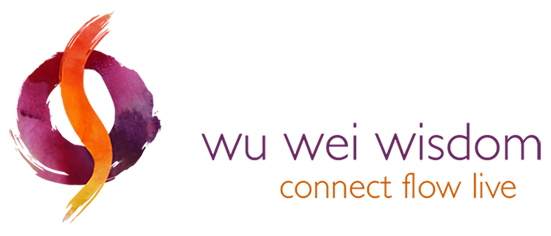yang sheng – the ancient chinese approach to self-care

summary
In this interview for Natural Health Magazine, Alexandra Lees explains the ancient Chinese healthcare principle of Yang Sheng and practical ways you can apply Yang Sheng in your life.
“…One important message behind Yang Sheng is that prevention is better than cure…”

This interview featured in the May 2019 edition of Natural Health Magazine.
what is Yang Sheng?
Yang Sheng is a Chinese Taoist philosophical concept that relates to maintaining good health.
‘Yang’ 養 means nourishing or nurturing. ‘Sheng’ 生 means life, growth or vitality – with the emphasis being on the process of life developing and transforming over time. So the closest translation of Yang Sheng 養 生 would be ‘nourishing life’.
The Taoist belief that underpins the concept of Yang Sheng is that our vitality and longevity can be sustained and strengthened through holistic healthcare practices such as physical movement and exercise, meditation, and other self-healing techniques and dietary choices. The aim is to balance and support the energy of our mind and body – the Taoists refer to this energy or lifeforce as ‘qi’ or ‘chi’.
The other important message behind Yang Sheng is that prevention is better than cure. If we can take affirmative and regular steps to support and balance the energy of our mind and body this will help prevent the development of ill health and ‘dis-ease’ in the longer term. This preventative approach underpins the ethos of all forms of traditional Chinese medicine.
what is the history of Yang Sheng?
The principle of Yang Sheng is referred to in several classical Chinese medicine texts dating back to 3rd and 2nd centuries BC.
The concepts of health maintenance and disease prevention informed how the ancient Chinese would interact with their doctors. People would pay the Chinese medicine doctor (with produce from their fields) when they were well and would stop paying the doctor when they fell ill. The doctor would routinely ‘prescribe’ a healthcare regime that would include meditation, qigong exercises, Chinese herbs and acupuncture treatments to help support the health of local villagers.
This emphasis on prevention and self-care can be contrasted with the traditional Western medical approach, where we typically only visit the doctor when we are sick.
what does Yang Sheng involve?
Yang Sheng is a philosophical approach to life and good health rather than a prescriptive ‘therapy’.
There are numerous ways you can apply Yang Sheng in your daily life and there is not one ‘best practice’ approach. It’s about finding a range of techniques or healthy habits that appeal to you and fit comfortably with your lifestyle.
The ultimate aim is to achieve Wu Wei, this is the Taoist principle of a harmonious and ‘effortless’ state of balance both within yourself and in your relationship to the world around you.
The simplest and easiest way to apply Yang Sheng in your life is to become more aware of and attune to your natural environment and the seasons. The ancient Taoists taught that if we can live in harmony with nature this will support our health and wellbeing.
is Yang Sheng and early form of self-care?
Yang Sheng is about taking proactive self-responsibility for your own self-care and self-nurturing regime. It is a very self-empowering concept as it teaches us not to rely or become dependent upon other people or things for our health and wellbeing. Most Yang Sheng practices can be done for yourself and cost very little or nothing at all.
Yang Sheng should be an ongoing process of health maintenance that we apply over the course of our life. Yang Sheng places emphasis on the idea that a series of small and regular actions and lifestyle choices can, over time, add up to produce larger benefits for our health.
Yang Sheng is not about radical interventions or quick-fix solutions, instead it’s characterised by more subtle and timely tweaks and adjustments to our daily healthcare regime.
simple Yang Sheng rituals to try at home
The ancient Chinese Taoists enjoyed a regime of qigong and meditation practice, a seasonal local diet, adequate rest and sleep, and generally living in tune with the rhythm and cycles of nature. Applying and adapting this Yang Sheng approach to modern life will help you feel healthier, more energised and at ease – you’ll be more in your ‘flow’.
Here are a few one-minute rituals to support the qi energy of your mind and body that you could try as part of your daily Yang Sheng routine:
‘Wu Ji’ grounding
Wu Ji is a very simple yet powerful qigong standing position that is both energising and relaxing.
Stand with your shoulders relaxed, arms lose at your sides, palms facing backwards, knees slightly bent, feet hip-width apart. Visualise a stream of flowing energy running from the top of your head, down through the centre of your body following a nice ‘S-shape’ in your spine, and then out between your legs and into the ground.
Notice any areas of tension or discomfort in your body. Imagine breathing deeply into and softening the muscles in these areas.
Drop your shoulders
Often we hold tension within our body without even realising it even though this is not a natural state of being. Over time, heightened tension and stress can develop into more serious health problems so it’s better to address it before it builds up.
One of the obvious places we hold tension is in our shoulders and shoulder blades. Take one minute out, several times a day, to observe the position of your shoulders and how tense they are. Consciously drop and lower your shoulders away from your neck and chin and visualise exhaling out tension in your body as you do so.
Eat the rainbow
When you open the fridge or cupboard to select ingredients for a meal or snack, spend one minute mindfully choosing food items of different colour combinations. If you can include seasonal ingredients this is great too!
This colourful, seasonal way of eating is advocated in Chinese medicine to help ensure a balanced and nutritious diet that promotes healthy qi flow.
Mindful eating
We often eat on the go, rush our meals, and don’t take time out to appreciate our food. At mealtimes, we should sit at a table (not your desk at work!) and put away our phones to avoid distractions.
The one-minute ritual is to then mindfully choose a fork or spoonful of food from your plate and chew your food slowly for 1-minute at a time, noticing the flavour and texture of each mouthful.
This will not only mean your meals become more satisfying but it will also support your digestion and you’ll be more aware of when you are full so it will help prevent over-eating.
Give gratitude
To sensitively balance the energy of the mind we need to avoid mental and emotional overwhelm. This is particularly important at the end of each day when we should be unwinding and preparing for a good nights’ sleep.
Before bedtime, take a minute to write out a short list of everything you are grateful for that day. Don’t overthink it, just write out the first things that come to mind.
This will help you process your busy day, set aside any unresolved issues and create a positive mindset that is more conducive to a restful night’s sleep.
want more support
Learn more about Alex’s feng shui and mindful design work and how she can help you.
You can also:
- join our free Wu Wei Wisdom Facebook Group where you’ll find lots more guidance and discussion
- sign up for our free weekly email newsletter with all our latest teachings and news.
If you have any questions or would like more information on our work please contact us – we’re always happy to help.
like this post?
Please share it! This helps to pass on the positive Qi of our work to others who may benefit…
